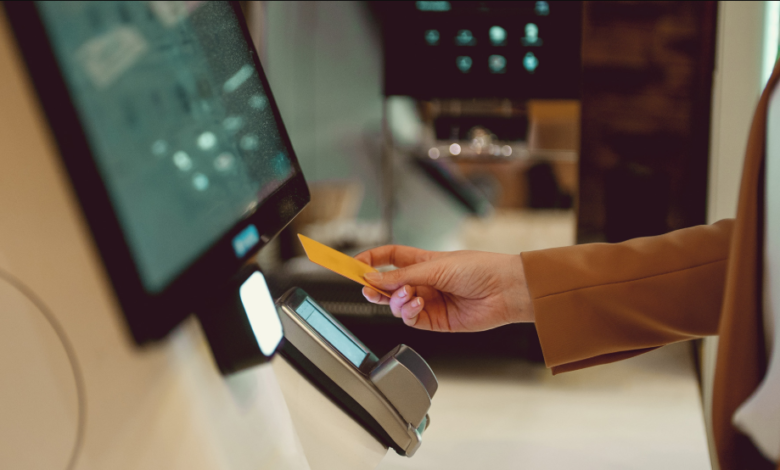Enhancing Retail Efficiency With Modern Scanning Technology

Introduction
The modern retail environment demands speed, accuracy, and reliability in every transaction. Supermarkets, in particular, face the challenge of managing high customer volumes while maintaining seamless checkout operations. One technological solution that has become indispensable is the barcode scanner for supermarket. These devices not only streamline the checkout process but also provide critical support for inventory management, pricing accuracy, and operational efficiency.
The Function of a Barcode Scanner in Retail
A barcode scanner for supermarket information on product labels and communicates it to the store’s point-of-sale system. This enables fast and accurate recording of sales, automatically updates inventory, and helps maintain correct pricing. By reducing human error, supermarkets can ensure that customers are charged correctly and that stock levels are tracked efficiently.
Advantages of Using a Barcode Scanner for Supermarket
There are multiple benefits associated with integrating these scanners into supermarket operations:
- Faster Checkout: Significantly reduces the time customers spend waiting in line.
- Improved Accuracy: Minimizes mistakes in pricing and sales entries.
- Inventory Control: Tracks stock in real-time to prevent shortages and overstock.
- Operational Efficiency: Reduces manual entry tasks, freeing staff for other responsibilities.
- Enhanced Customer Experience: Smoother transactions and accurate billing lead to greater satisfaction.
Types of Barcode Scanners
Retailers can choose from several types of scanners depending on the store’s layout and volume of transactions:
- Handheld Scanners: Portable devices used for scanning items individually, suitable for mobile checkout or stocktaking.
- Fixed-Mount Scanners: Installed at checkout counters for high-speed scanning of multiple items.
- Laser Scanners: Use laser beams to read barcodes accurately, even from a distance or at high speed.
- CCD Scanners: Compact and reliable, ideal for moderate-volume retail environments.
- Wireless Scanners: Provide flexibility by allowing scanning anywhere in the store without cable restrictions.
Integration With POS and Inventory Systems
A barcode scanner for supermarket does more than read product codes; it is often part of a broader retail ecosystem. Integration with point-of-sale and inventory management systems allows for:
- Real-time stock updates as items are sold.
- Generation of sales reports for business analysis and forecasting.
- Support for loyalty programs and promotional campaigns.
- Accurate pricing and automated discount application.
Choosing the Right Scanner
When selecting a barcode scanner, retailers must consider several key factors:
- Scanning Speed: Essential for high-traffic checkout lanes.
- Durability: Must withstand daily usage in busy environments.
- Compatibility: Should work seamlessly with existing POS systems and software.
- Ease of Use: Quick training for employees and intuitive operation.
- Cost Efficiency: Balancing initial purchase price with long-term operational savings.
See also: How AI Image Generators Work: The Science Behind the Tech
Advancements in Scanner Technology
Recent innovations have made barcode scanners even more efficient:
- 2D Barcode Reading: Supports QR codes and complex labeling for digital promotions.
- Wireless Connectivity: Increases flexibility and reduces clutter at checkout stations.
- Mobile POS Integration: Allows scanning directly through tablets or smartphones.
- Cloud-Based Systems: Facilitates remote monitoring and centralized data analysis.
Maintenance and Support
Maintaining barcode scanners is essential to ensure consistent performance:
- Routine Cleaning: Keeps lenses free from dust and smudges to maintain accuracy.
- Software Updates: Ensures compatibility with new barcode formats and POS software.
- Hardware Checks: Detects wear or damage before it affects operations.
- Employee Training: Proper handling extends the lifespan of the device and reduces errors.
Impact on Supermarket Operations
Adopting barcode scanners leads to several improvements in retail operations:
- Reduced Waiting Times: Faster scanning accelerates the checkout process.
- Accurate Inventory Tracking: Minimizes discrepancies between recorded and actual stock.
- Informed Decision Making: Sales data supports better stocking and promotional strategies.
- Customer Loyalty: A smooth and reliable checkout experience encourages repeat visits.
Conclusion
Implementing a barcode scanner for supermarket is a strategic investment for retailers seeking operational efficiency, accuracy, and enhanced customer service. These devices, when integrated with modern POS and inventory systems, help supermarkets optimize workflows, reduce errors, and gain valuable insights into sales patterns. Embracing advanced scanning technology not only improves daily operations but also supports long-term growth and competitiveness in the retail sector.





